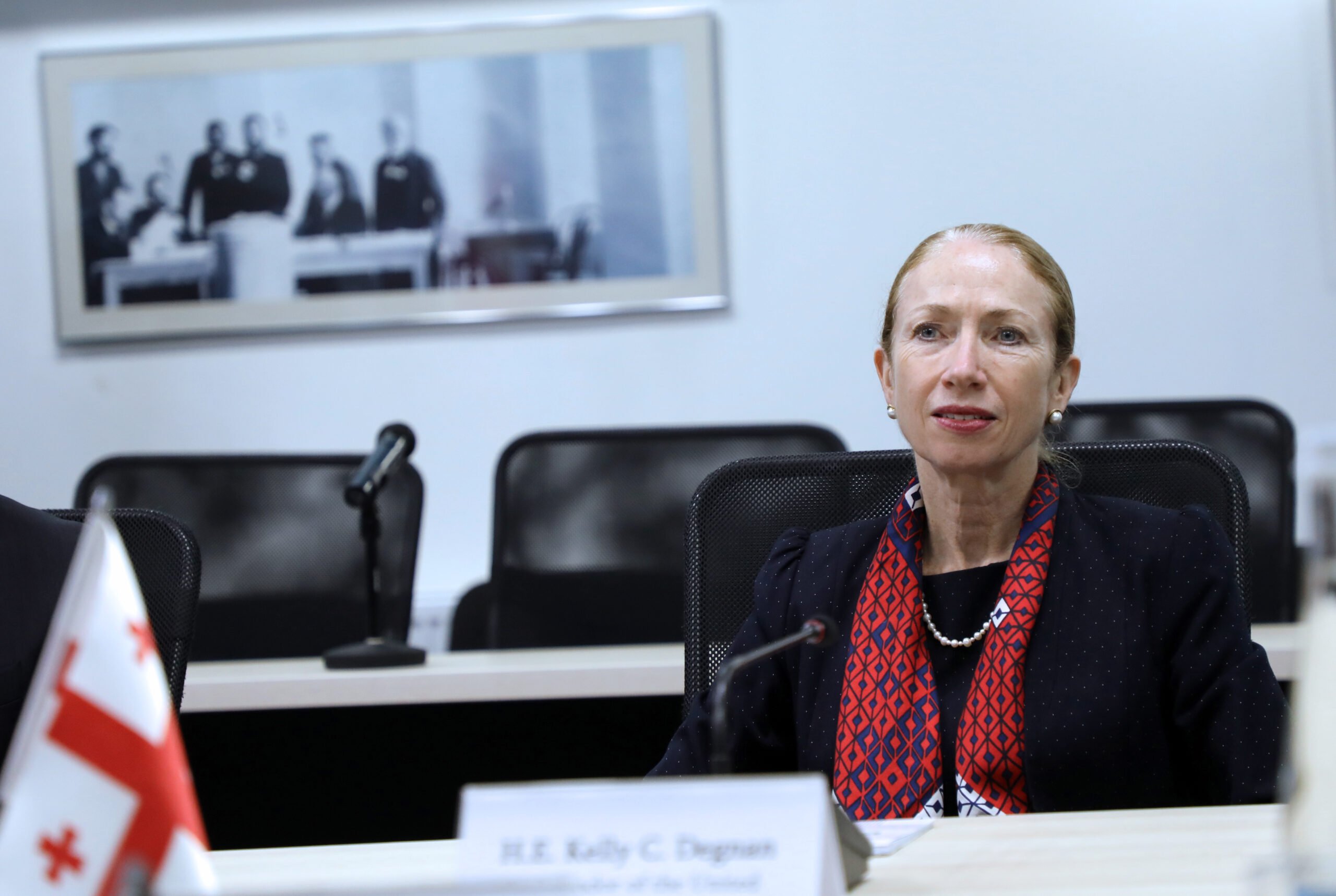Kelly Degnan, former U.S. Ambassador to Georgia, said on April 18 that the foreign agents’ law could be intended to curb election observation in Georgia. Amb. Degnan was speaking at the panel titled “Georgia – The Battle for Democracy and Euro-Atlantic Integration” at the Bologna Institute for Policy Research.
Amb. Degnan noted that Georgia’s ruling party has spent the last year discrediting domestic election observers such as ISFED and TI-Georgia, and argued the Georgian Dream wants to stifle dissent “so that there is no one to criticize or comment on the fairness of the [parliamentary] elections in October.”
She went on to say that even though Georgia “made impressive progress” in building democratic institutions over the years, they remain “fragile” and have been “under attack by the current leadership,” which “tries to reverse some of the reforms that would create a more level playing field” and exerts “intense pressure” to co-opt the democratic institutions.
Amb. Degnan also spoke of “endemic” corruption “mostly at the high level,” mentioning specifically the “clan of judges” that she described as “indispensable to whichever group is in power,” noting that they were also influential during the tenure of the former Georgian president, Mikheil Saakashvili. She said the control of the government over the judiciary also stifled U.S. investments because the companies thought that “if they had a business dispute, they were probably not going to win or get a fair judgment.”
“Georgia has its own oligarch”
“So in Georgia, where the ruling party now controls the Parliament, the judiciary, and the Government, the President is the last remaining independent institution,” – said Degnan, arguing that the Georgian Dream proved “a very effective fear-monger” which is “so viscerally against anything related to [Mikheil] Saakashvili.”
Degnan added that she sees President Zurabishvili as independent in her actions, be those “lobbying for European Union membership […] or advocating for her unity initiative for European future.”
She noted that the democratic institutions in Georgia are “weak” and many of them are under attack “as the current leadership tightens its grip on power and tries to reverse some of the reforms that would create a more level playing field.” She noted: “Like other former Soviet States, Georgia has its own oligarch who is determined to maintain the status quo that works in his favor.”
The former Ambassador said she was “concerned” that since the Parliament would elect the next president all institutions would thus come under the ruling party’s control. She stressed: “This is not democracy.”
Degnan observed that the opposition political parties in Georgia are still “very fragile” and “unpredictable” although noted that the “opposition has also learned some things during this very difficult period.” She wondered if “President Zurabishvili, as we get closer to the elections, will be part of an alternative.”
Positive about Georgians, civil society
Kelly Degnan made some positive remarks about civil society and the commitment of the Georgian people to democracy.
“Civil society is much better organized in response to the reintroduction of the foreign agents law this year than they were last year,” the diplomat said, adding that “civil society has learned how to come together and how powerful they can be when they work together and when they follow certain parameters and don’t get too political themselves.”
She praised the Georgian people, describing them as “freedom-loving” who would eventually say “enough” to the Government. However, the U.S. ambassador was not sure what the trigger might be: either the foreign agents’ law, the upcoming parliamentary elections, which she believes could be “yet another rigged election,” or “something else entirely.”
The event in Bologna was organized by the Johns Hopkins University/SAIS Europe Student Government Association.
Kelly Degnan served as the U.S. Ambassador to Georgia from 2020 to 2023. She is currently the Foreign Policy Advisor to the Chairman of the U.S. Joint Chiefs of Staff.
